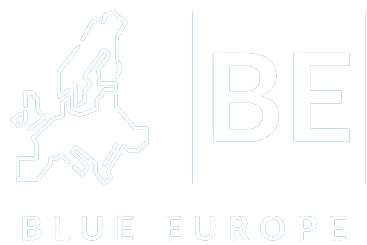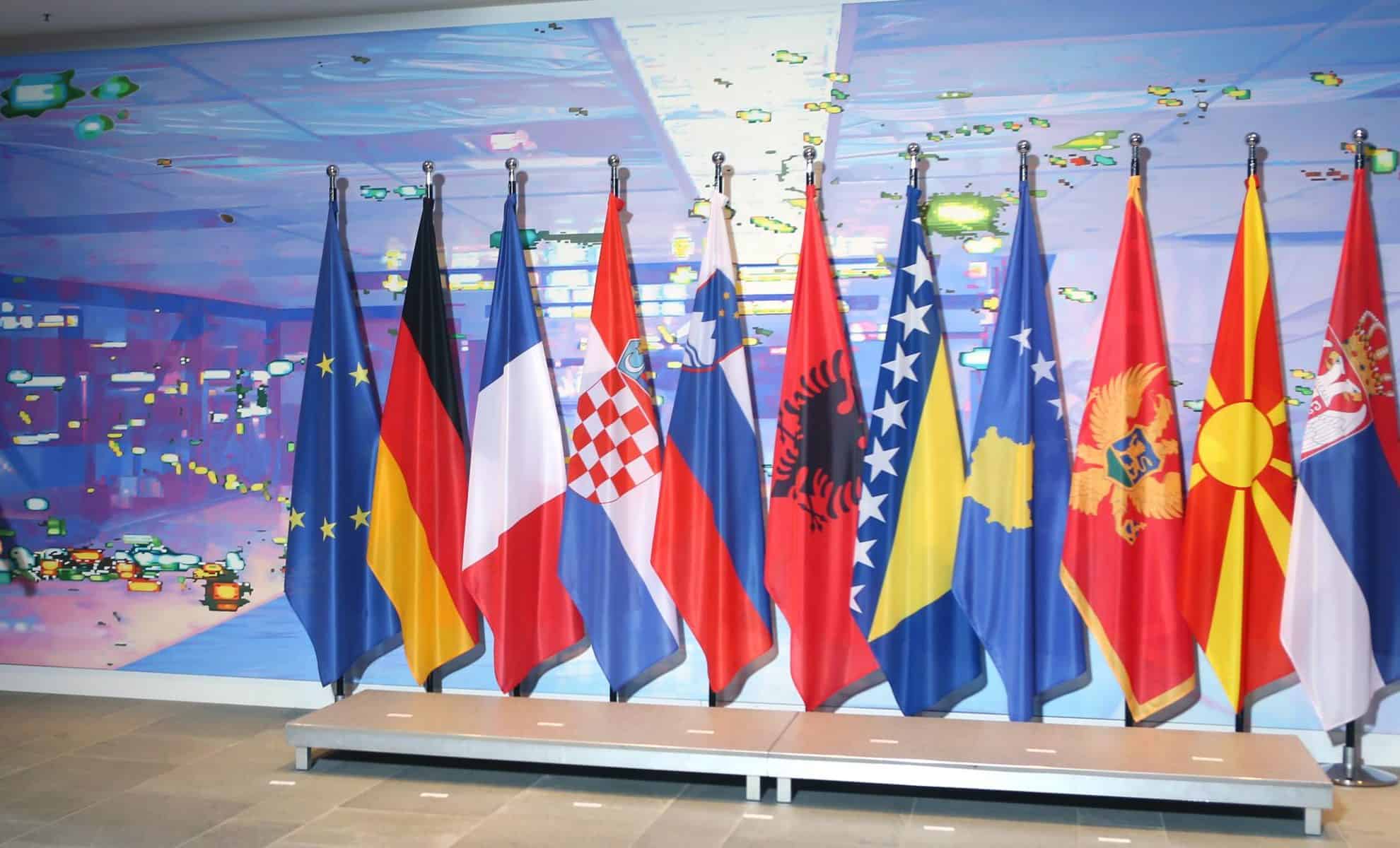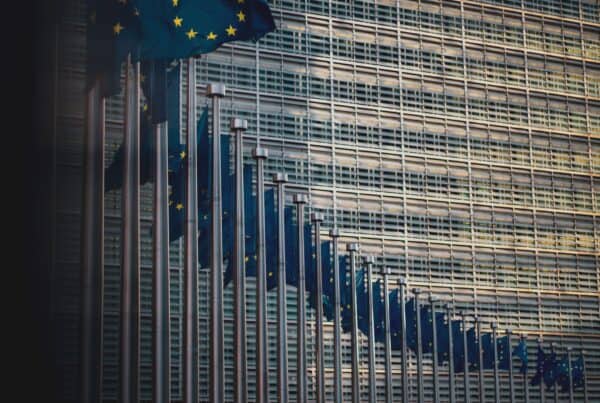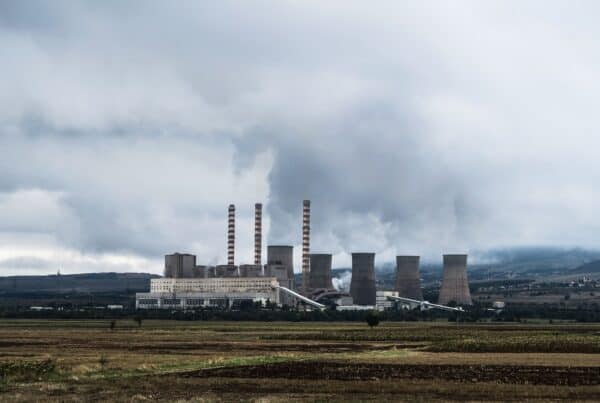Introduction
The large-scale invasion of Ukraine by Russia since February 2022 has radically transformed the international political environment and internal balances within the European Union and, predictably, has also affected relations with the Western Balkans. The process of European integration of the six countries in the region (Albania, Bosnia Herzegovina, Kosovo, North Macedonia, Montenegro and Serbia), which had been in serious difficulty for years, was shaken by the outbreak of a new war in Europe: initially, hopes for a revival were rekindled, but over the course of the months, the previous tired situation returned, albeit in a drastically changed scenario.
The need to provide Ukraine with political as well as military support in order to cope with the Russian invasion prompted the EU member states to hastily grant the country official EU membership, which had so far been categorically denied on several occasions. The sudden openness towards Kiev was complemented by a new willingness of the EU towards two other Eastern Partnership countries threatened by the Kremlin’s foreign policy, Moldova and Georgia. In the course of 2022, the EU enlargement policy thus expanded to nine countries today, including actual and potential candidates.[1]
This significant enlargement has further emphasised the political stalemate that has been going on for years in the Western Balkans, where, more than two decades after the start of the enlargement policy, very little progress has been made and there has been an increasingly evident slowdown. In the tragic context generated by the war in Ukraine, the EU Member States have therefore deemed it opportune to reassure the region of their political will to fulfil the integration commitment made at the Thessaloniki summit in 2003, offering some important signals also to the discouraged Western Balkan partners. In particular, in December 2022, Bosnia and Herzegovina[2] was officially nominated as a member country by the European Council, while in April 2023, the European Parliament confirmed the long-awaited visa waiver for Kosovo.[3] The latter case was the European Commission’s confirmation of the European Union’s intention to abolish the visa regime for Kosovo.
In the latter case, the European Commission had long since given a positive opinion on granting its citizens the right to free movement in the Schengen area, but the Balkan country had been blocked for a long time due to the opposition of some member states in the EU Council. Until the historic and recent abolition of visas, the citizens of Kosovo were the only ones in the region who did not enjoy the right to free movement, a restriction that will only finally come to an end in January 2024.
Bosnia and Herzegovina, on the other hand, obtained its long-awaited EU candidature in response to the international crisis, but without having made any visible progress with respect to the European Commission’s repeated requests to the local political elites. To date, fourteen items remain on the agenda, the resolution of which is considered necessary to move the integration process forward. On the contrary, the political stalemate in the country, torn apart by deep splits along ethnic and political lines, continues to worsen. The new international context has, however, convinced the EU Member States of the need to give a clear signal about Brussels’ political investment in Bosnia’s institutional stability and European future.
Driven by new needs, EU enlargement policy has increasingly taken on a security dimension in recent months. As of 2004, the EU already had an explicit mandate to protect the security of Bosnia and Herzegovina assigned by the United Nations, through the management of the military operation EUFOR Althea. However, the presence of the military of the member states in charge of peacekeeping in the country had been gradually reduced from 6,000 to 600 over time.[4]
New emerging political and geopolitical challenges
At a time when the EU was becoming less and less convinced of the urgency of having to give the country a long-term perspective, if not by accelerating, then at least by streamlining the integration process of Bosnia and Herzegovina and the entire region, the issue of the geopolitical dimension of enlargement had become increasingly central to the European agenda. In spite of the commitment and political initiative of countries such as Germany, the prime architect and driving force behind the so-called “Berlin process”, and repeated attempts to devise new and original strategies to relaunch the process over the past few years, European enlargement policy had continued to visibly lose relevance on the agenda of the vast majority of EU countries.
Nor were the repeated warnings about the growing Russian, Turkish and Chinese penetration into the region, and thus the appeal to the geopolitical dimension of enlargement, sufficient to really rekindle European political interest in bringing this veritable enclave into the EU’s political architecture.
On the contrary, the determination of some member states to block the process, often driven by internal considerations and unrelated to the real progress or shortcomings of the countries concerned, has been able to increasingly dictate the Union’s policy towards the region. A situation that has long crystallised and is perhaps most clearly and paradigmatically symbolised by the political odyssey of North Macedonia. The country had been a candidate since 2005 but found itself blocked first by Greece’s 20-year-long name clash (resolved by Skopje’s decision to change the country’s constitutional name from ‘Macedonia’ to ‘North Macedonia’, following the Prespa agreements in 2018), then by France’s concerns and now by Bulgaria’s request to include the Bulgarian minority among those officially mentioned in the Macedonian constitution. Despite the opening of the negotiations, Macedonian politicians and public opinion are largely mistrustful of the promises of integration and equally unwilling to undergo new reforms in the name of a European future that is perceived as nebulous.[5]
In any case, in February 2022, the international framework was radically transformed. Initially, the Russian invasion generated great concern about the possible opening of a second front in the Western Balkans, a long-standing area of friction between the Euro-Atlantic and Russian spheres of interest.[6] In the first weeks of the conflict, the alarm was particularly felt in Bosnia and Herzegovina, where the local population is still deeply traumatised by the 30-year-old conflict.
In the later stages, it was Serbia that found itself in difficulty, engaged in a delicate and increasingly uncomfortable balancing act between the West and Moscow, Belgrade’s main ally in the game over the fate of Kosovo. After the outbreak of hostilities, European and American pressure on Serbia to comply with the sanctions against Russia and, in general, European foreign and security policy has grown exponentially. Although the room for manoeuvre in Serbian foreign policy has been drastically reduced, crushed by the ongoing military and geopolitical clash, Serbian Prime Minister Aleksandar Vucic has so far managed to avoid a break with Moscow by asserting his right to an autonomous political line in the Yugoslavian tradition.[7]
The invasion of Ukraine also had visible repercussions on the unresolved bilateral relations between Serbia and Kosovo, which had been engaged for years in a process of normalisation of relations facilitated by the European Union, but which was also marked by a long period of stalemate. After the start of the Russian invasion, there was an evident rekindling of tensions between Pristina, which declared its independence in 2008, and Belgrade, which continues to consider Kosovo an integral part of its national territory. Tensions erupted in the autumn of 2022 in the so-called ‘war of the plates’, which at some stages led to fears of a return of the slow-moving confrontation between the two sides.[8]
Driven by the need to show a decisive and credible response, the High Representative for EU foreign policy Josep Borrell launched, after years of inertia, a new and more convinced diplomatic initiative that generated high expectations and a bilateral agreement reached in March 2023 in Ohrid, North Macedonia, formally accepted but not yet signed by the parties, causing new scepticism about the possibility of overcoming the wall-to-wall.[9]
The impression is that the international community at large is mainly working in an effort to co-opt Serbia in order to distance it from Russia, instead of maintaining a clear stance in the face of political ambiguity in the dialogue on Kosovo as in the other open dossiers. For its part, the Kosovan government led by Albin Kurti does not seem willing to compromise on the main issue still on the table, i.e. the immediate creation of an Association of Serbian Municipalities, an instrument of protection for the Serbian minority, perceived by Pristina as a latent threat to its own unfinished statehood.
Further fuelling Pristina’s suspicions is Belgrade’s support for the political leader of Republika Srpska (RS) Milorad Dodik, who continues to threaten the secession of his entity and thus the collapse of the fragile structure defined by the Dayton accords on which peace in Bosnia and Herzegovina is barely sustained. Here too, the situation has therefore started to deteriorate again, despite the injection of confidence and security that should have come after the acceptance of the European candidacy last December.
Paradoxically, in the course of 2022, the ongoing tension fuelled by the RS political elite was compounded by the worsening crisis in relations between the Bosnian and Croatian components in the other constituent entity of the Federation of Bosnia and Herzegovina, also as a result of the controversial intervention of the High Representative of the International Community (OHR) Christian Schmidt. The latter, with the aim of unblocking the formation of the government in the Federation, repeatedly resorted to the use of the OHR’s Bonn Powers – attributed to the OHR by the Bosnia and Herzegovina Peace Implementation Council since 1997 to resolve any institutional deadlocks – marginalising the Bosnian nationalist party and triggering strong controversy over concessions to the country’s Croatian component.[10]
The initial shock, therefore, was followed by a phase of normalisation of the risks arising from the new international scenario. On the whole, the weight of twenty years of unsuccessful dialogue with the EU prevailed again, crushing public opinion, study centres and civil society under the weight of systems that were still incapable of consolidating demo- cratic processes and thus of contributing to a real post-conflict pacification.
Even taking into account the particular conditions of each of the countries in the region, in the Western Balkans, cronyism, corruption, and the political drift towards increasingly less democratic systems has once again generated frustration and disillusionment about the future and the possibility that the process of European integration can lead to political and economic consolidation that will ensure a clear improvement in prospects and quality of life. The most visible consequence of this situation is that ever-increasing percentages of the population have begun to look to emigration as an individual solution to their lack of political, social and economic prospects.[11]
The numerous proposals to revitalise enlargement to the Western Balkans are nowadays received with increasing coldness by both the political classes and local public opinion, which is increasingly perceived as an empty technical-bureaucratic effort with no chance of a positive outcome. On the other hand, for a part of the regional elites, playing on several tables in alliances outside the EU, be it Russia, Turkey or China according to convenience, continues to bear fruit or at least is not sanctioned unequivocally. The most striking case is that of Dodik in Bosnia Herzegovina,[12] who, despite being hit by US sanctions, remains a perfectly ordinary political interlocutor of Enlargement Commissioner Varhelyi, Hungarian Prime Minister Orban[13] and Croatian Prime Minister Andrej Plenković.[14]
In addition to the discouragement of local political elites that are clearly inadequate to deal with the great challenges of the region, there is also frustration with the European Union and the cynicism of its member states. The unanimity in the European decision-making process leaves the enlargement policy at the mercy of the electoral cycles of each of the Twenty-Seven: regardless of their political weight and the validity of their reasons, each member of the ‘club’ is seen as an interlocutor who can arbitrarily frustrate the collective efforts.
There is no shortage of other worrying examples – also external to enlargement – that show how opportunistic and thus inconsistent the positions of EU member states can be. Taking advantage of Russia’s expulsion from the Council of Europe, the Kosovan government initiated an application for membership in the regional organisation a year ago, an application that requires the positive opinion of two-thirds of the member states in order to be accepted. In April, the Council of Ministers of the forty-six member states approved Pristina’s application with thirty-three votes in favour, five abstentions (Greece, Slovakia, Moldova, Ukraine and Bosnia and Herzegovina) and seven against (Hungary, Spain, Cyprus, Romania, Azerbaijan, Georgia, and of course Serbia).[15]
From the position expressed by the Council member states, the complexity of European foreign policy can be seen: Hungary, which also recognises Kosovo, voted against. Of the five EU member states that did not recognise Kosovo’s independence, Spain, Cyprus and Romania confirmed the extremist position, while Greece and Slovakia abstained, showing openness towards the future of the former autonomous province, recognised by the other twenty-two EU member states.
It is clear that without overcoming the decision-making process based on unanimity, at least in the intermediate stages of the enlargement process, the EU’s policy towards its strategic neighbourhood will not regain credibility with the candidate countries and will remain a prisoner of continuous, more or less arbitrary vetoes.[16] The problem of the geopolitical role of a fragile and complex region such as the Western Balkans remains on the EU’s table, but the current decision-making instruments are clearly unsuitable to face the challenges and reap the undeniable opportunities offered by the region.
Conclusion
In the absence of a change of course, the EU’s external competitors will continue to have an easy time provoking divisions and contrasts, preventing the emergence of a strong and clear line in the management of relations with the region. In the past years, it has mainly been Russia and its local allies that have stimulated political instability, in the future the ‘divide and rule’ may be Chinese and occasionally also American.[17] In recent years, there has been no shortage of occasions for sensitive disagreements between the US and the EU in their approach to the Western Balkans, while only when they have acted in concert have they achieved significant results.[18]
The impression is that in the region, at least so far, no one is really aware of the long-term consequences of the radical transformation of the international context. For the time being, the attempt to rethink enlargement as an instrument in security policy did not seem to generate any substantial changes. While in Kiev and Chisinau, the chapters of the acquis communautaire are being resolutely examined in order to open negotiations by next year, a deep-rooted pessimism prevails in the Western Balkans and the impression that the new candidates have not yet understood what awaits them. The common feeling is that the Ukrainians will soon discover that European integration is actually a chimera and that there are too many reasons against further enlargement of the Union.
Enlargement, in fact, cannot take place without a radical transformation of the candidate countries. The clearest example of this is the reform of the judiciary, which almost all candidate countries have to tackle in order to ensure the functioning of the rule of law for their citizens, which is a prerequisite for EU membership. The far-reaching reform that has been underway in Albania for a few years now, which is producing the first encouraging results, has led to the removal of a large proportion of serving judges: a radical but necessary choice given the degree of corruption of the judiciary in the country. Evidently, no political class would have ever taken such a drastic measure without the convinced and regular pressure of the European Commission.[19]
In order to restore confidence in the future to populations that have been tried by 30 years of wars and radical transformations in the political, economic and social spheres that have put them to the test, and in order to proceed with the reforms necessary for European integration, we need the consistent commitment of European institutions that are determined to make the local political elites understand that the time for tactics is over, and that they now have in front of them interlocutors capable of reconfiguring the future of the common political space.
Unfortunately, the process of European integration does not produce any striking results in a short period of time that would make the political advantage of membership obvious to civil society in a simple way. Furthermore, the EU regulations to which the countries of the region must harmonise their systems are rather limited in areas that can offer a rapid improvement in the quality of life of their citizens. This is why it is essential to avoid confusion about the responsibilities and results of the European integration process.
Offering security guarantees today to Ukraine as to Bosnia Herzegovina or Kosovo is an important objective, not only for the EU’s strategic priorities, but also to address the concerns of citizens of countries in the region whose existence is (still) threatened. However, we must avoid the risk that, in the face of the current international crisis, the nature of the enlargement policy will be turned upside down and the relationship between the EU and the candidate countries, both in the Western Balkans and in the Eastern Partnership, once it has been rethought exclusively in terms of security, will end up not producing democratic consolidation, economic development and harmonisation of regulations, but only political alignment of convenience, which is insufficient to create full European integration, just as many citizens in the region fear.
References
- https://www.consilium.europa.eu/en/press/press-releases/2022/06/23/european-council-conclusions-on-ukraine-the-membership-applications-of-ukraine-the-republic-of-moldova-and-georgia-western-balkans-and-external-relations-23-june-2022/ ↑
- https://www.consilium.europa.eu/en/press/press-releases/2022/12/13/council-conclusions-on-enlargement-and-stabilisation-and-association-process/ ↑
- https://www.consilium.europa.eu/en/press/press-releases/2022/12/14/kosovo-council-presidency-and-european-parliament-agree-on-visa-free-travel/ ↑
- https://www.eeas.europa.eu/eufor-althea/eufor-bosnia-herzegovina-military-operation-althea_en ↑
- https://www.iemed.org/publication/re-examining-two-key-accession-processes-the-cases-of-north-macedonia-and-serbia/ ↑
- https://carnegieendowment.org/politika/89600 ↑
- https://carnegieendowment.org/politika/89600 ↑
- https://www.dw.com/en/serbia-balances-between-russia-and-the-west/a-41854351 ↑
- https://www.eeas.europa.eu/eeas/belgrade-pristina-dialogue-implementation-annex-agreement-path-normalisation-relations-between_en ↑
- https://www.rferl.org/a/bosnia-schmidt-protests-sarajevo-election-laws/32344797.html ↑
- https://www.aspeninstitute.de/wp-content/uploads/2020-Emigration-from-the-Western-Balkans.pdf ↑
- https://www.reuters.com/world/europe/bosnian-serb-leader-dodik-charged-over-defying-peace-envoys-decisions-2023-08-11/ ↑
- https://n1info.ba/english/news/bosnias-dodik-meets-varhelyi-and-orban-in-budapest/ ↑
- https://balkaninsight.com/2022/01/18/croatian-president-calls-dodik-partner-amid-bosnian-electoral-crisis/ ↑
- https://balkaninsight.com/2023/04/24/kosovo-passes-first-step-to-council-of-europe-membership/ ↑
- https://carnegieeurope.eu/2022/06/20/what-has-stopped-eu-enlargement-in-western-balkans-pub-87348 ↑
- https://www.europarl.europa.eu/RegData/etudes/STUD/2020/653621/EXPO_STU(2020)653621_EN.pdf ↑
- https://www.iemed.org/publication/the-european-union-and-the-kosovo-challenge/ ↑
- https://europeanwesternbalkans.com/2022/06/16/despite-its-weaknesses-the-vetting-process-remains-the-reform-of-paramount-importance-in-albania/ ↑





